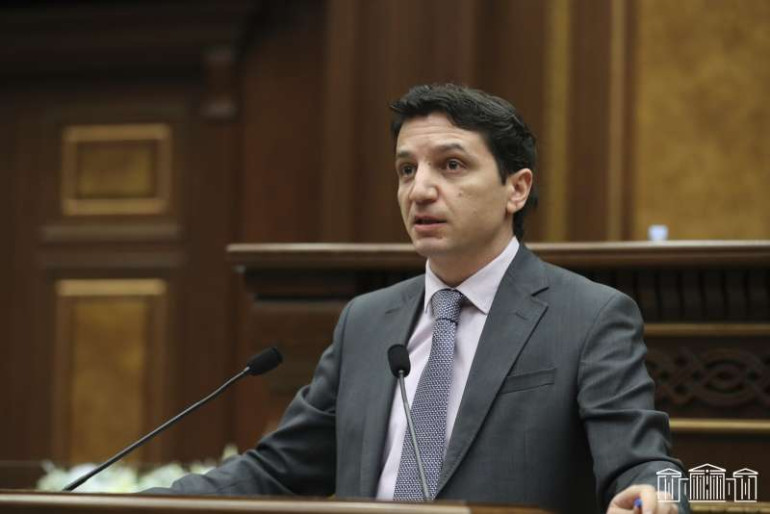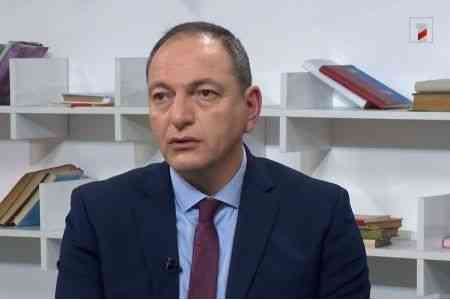According to Radio azatutyun news, the Armenian government is starting preparations for the gradual introduction of a system of national health insurance that should cover the country’s population.
An insurance plan unveiled by the government recently calls for a special tax that will cover the cost of surgeries and other essential medical services. According to government estimates, every working citizen will have to pay between 150,000 and 200,000 drams ($375-$500) annually for such coverage.
The Government is taking steps to ensure the phased introduction of comprehensive health insurance in Armenia
The regular Cabinet meeting took place today, chaired by Deputy Prime Minister Tigran Khachatryan according to the website of the Government of the Republic of Armenia.
The Government approved the concept of introducing Comprehensive Health Insurance. As mentioned by the Minister of Health Anahit Avanesyan, in 2023, the package of services, which has already been developed, will be approved in the first stage. “Package prices will be established, they will not be calculated based on a certain percentage of people’s incomes, but will have a fixed cost of services. The amount of state co-financing will be determined. From 2024, under state order financing, all our beneficiary groups will be equalized and all services provided to them will be the same, ensuring we don’t have a mixed, fragmented system. In 2024, we will have a group of citizens insured with a comprehensive insurance package, and we will begin to include other people who want to join the program in the scope of voluntary insurance. In 2025, pensioners will be included by the state as another important protection group and a scope of state care, and they will also benefit from the full services of the insurance package. During these years, the inclusion of citizens in the voluntary insurance framework will continue. From 2027, we will have mandatory full insurance coverage for the entire population,” said the Minister.
Tigran Khachatryan highlighted the adopted decision and singled out several important issues that will be crucial for the reform. “There are several important directions, the first of which is the gradual expansion of the range of beneficiaries of this system. That is, so far we have been providing guaranteed, free health services for a certain group of people mainly within the framework of funding from the state budget. We consider it important that within the framework of these reforms the range of services provided for all groups of beneficiaries should be uniform. The second important step is that we will expand the range of people who can become beneficiaries along with the upcoming reform phases. Our goal is that the majority of citizens of the country become beneficiaries of this system by the end of the reforms. The third important issue, which is perhaps the first in importance, is that we should reform the management system so that the quality of services is much higher than it is today. It requires important works in a number of directions,” said the Deputy Prime Minister.
Samvel Kharazian, an expert at the Armenian Ministry of Health, cautioned on Tuesday that these figures could be revised upwards by the time the insurance system is launched in 2027. “These calculations are based on estimates made in 2019,” explained Kharazian. “We now need to update those estimates given the existing realities: inflation and the like.” The government has promised significant tax discounts for workers earning less than the average wage in Armenia. It currently stands at 248,000 drams ($620) per month, according to official statistics. The mandatory insurance plan will not cover plastic surgery, dental services, additional patient care or some types of post-surgical rehabilitation. But it envisages free or subsidized medication for people suffering from chronic diseases. It was reported that Armenia’s former governments too promised to put in place mandatory health insurance for all citizens. But they eventually backed away in the face of financial difficulties. Public access to healthcare in the country declined following the collapse of the Soviet Union as cash-strapped Armenian hospitals were allowed to charge their patients. Most of those hospitals were privatized in the 1990s. Only state-run polyclinics are now required to provide primary healthcare services to the population free of charge. Healthcare, including surgeries, is also supposedly free for children aged 7 and younger. In addition, over the past decade the state has partly covered healthcare expenses of civil servants, schoolteachers and other public sector employees.




